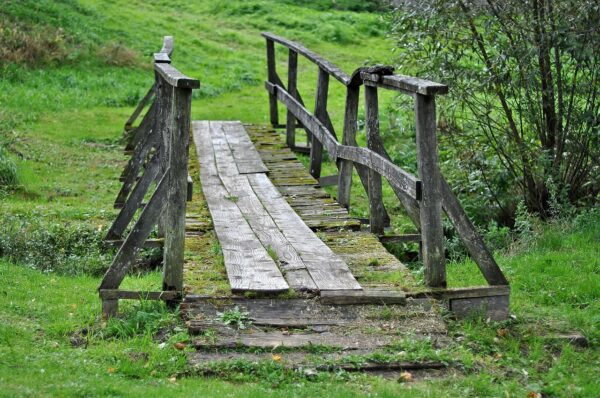Retirement is a major transition, but it is not the first one we have had … through life we have reached turning points and transitions. In this article I want to cover the turning points you will have encountered. I’ll continue next time with more on transitions.
Sometimes these transitions are connected to our career, we may experience a turning point when we are looking for a new direction. These can be a time of reflection where we consider how we are feeling, levels of happiness and fulfilment and look to alternatives.
They don’t always lead to a major change, sometimes taking time to reflect can lead to a small change in our work to rekindle the happiness in our job. But while we are in the process of this turning point it can feel like a crisis, we are in a period of not knowing at many levels:
- how long will we remain in this state?
- what will the outcome be?
- what will we lose?
- how will we feel?
- will we have regrets?
Some people want to move on and make a decision quickly, especially if there is a financial need due to a job loss. They take a similar job, even though they weren’t happy, but it’s a decision and they feel comfortable. Whilst this is the easiest option, it is a regressive transition and they have not truly moved on. They will find themselves at the turning point again soon.
The alternative is regenerative transition. This can be compared to how a caterpillar becomes a butterfly. There is an internal regenerative process going on inside and deep, well thought out change will occur. We need to allow time for this process.

Our many turning points
You’ve already gone through many turning points on your life and career journey. We need to expect to have turning points and recognise them as a time for considered introspection. These are some set life stages, that start with infancy, but I’m going to skip the younger years and start with adulthood.
As people experience these turning points and transitions, alongside personal reflection, many people will also seek the advice of a coach or career counsellor. What can help is to take the Highlands Ability Battery (HAB) to get some clear understanding of abilities and aptitudes, objective data to help decision making.
-
Leaving school and going to university, around 18
Becoming independent from family and considering your future. The HAB provides knowledge of natural abilities, how best to study and some clear career suggestions.
-
University to first job (22-27)
We make choices around career and our personal life. With career, any choice is not for ever, but the more it is aligned with natural abilities and career vision, the more helpful it will be as you progress in your career. In our personal life, this is often the time that we meet someone and want to start a long term relationship, with a view to commitment and children. If you don’t know what to do the highlands ability battery will give you relevant suggestions based on your abilities that will help you be more certain yin your choice.
-
Consider your career around 30 (28-33)
Around 28-33 is the time where people re-evaluate their chosen career path. I’ve worked with many Doctors and Lawyers at this stage. For most, they chose their career due to advice and some pressure from family and school. It wasn’t their dream. Now it is more important to get things right. If you don’t know yourself the HAB can provide good objective data for your next step. For others, who are happy in their work, and have found the right career path their focus is on focus on advancement.
-
Consider your career around 40
After 20 years in work, you may be successful, but it doesn’t feel right to you. You may have a clearer understanding of your values, and realise the work doesn’t match. For some this is a midlife crisis, but I see it more as a midlife review, time to take stock and make considered choices. To follow a regenerative transition.
In our personal lives we become more aware of ageing and mortality, perhaps there is serious illness and death with those close to us. In our career and life, the question can be around – is this it? Is this what life is all about? And to see to what extent we are living a life in line with our values? If you don’t know what to do the highlands ability battery will give you relevant suggestions based on your abilities. Most people taking the assessment at this age wish they had taken it earlier, but it is not too late!
-
Consider your career around 50
Similar to the turning point around 40, but now it seems more serious. Many of my clients see this as a ‘now or never’ one last push to get to where they want to get in their career. If they want to make a more radical change, they want to do it right now, but again it is important to take time to reflect and consider.
I had one client who gave up a well paid job to study for an MBA without much thought. He then failed to get back to the level he was at before studying, was in significant debt so had to move to a small property, and then his relationship failed, his wife wanted a divorce. This was not the future he had envisioned.
Women (who may have had to juggle family demands) often focus more on their career and men may consider making their career less of a priority. I worked with one senior lawyer who moved to a 3 day working week so he could focus more on artistic interests.
As you age, if you are still uncertain on what to do in your work life and indeed wonder where to focus your time and energy in your wider life, the highlands ability assessment will be helpful.

-
Retirement Transition – around 60
This is where my doctoral research fits, and I’ve been running pre-retirement seminars for 35 years. Too many people see this as a time of disappointment and regret with unfinished dreams. I want to help people see this as a time of integration, satisfaction and happiness.
Taking time to plan – how do you want your life to be moving forward? How much paid work and whether to stay in your job or move to something new? Is part-time working a good option to give you more time for other interests, or commitments. What do you want more of, and less of? What will be your legacy. You may have 20 years ahead so take time to think wisely.
For some this is a time when they consider themselves a ‘wise elder’ and seeing how they can support the younger generation, wider community and the world. Time to campaign perhaps and return to passion from younger times. Time to support younger people with challenges that you have had a lifetime to work on.
Too many people wait till they have retired and then realise there is a massive hole in their day as it lacks structure, so it helps to be thinking on this in advance. Taking advantage of any pre-retirement support from your organisation will be useful, and perhaps seek out a coach who specialises in retirement transitions and take time to plan this fruitful stage of life.
I use the word retirement, as people understand the term, but it is not the retirement of 20 years ago. Over the past century we have gained an extra 30 years of life. In the early 1900s people lived on average to about 47, the average is now 77. We can use this for the good, of ourselves, and of others. The old retirement can be left for the next life stage.
In this life stage we can continue to grow and develop. What will help is to answer these questions
- Who am I?
- What do I want to do in this stage of life?
- What and who will support me?
- What obstacles will I face?
As you age, if you are still uncertain on what to do in your work life and indeed wonder where to focus your time and energy in your wider life, the highlands ability assessment will be helpful.
-
Later-life transition – around 80
We can think we will stay healthy and active for ever, but there will come a time when many need to cut back. Things may take longer, there may be some health issues, and now seems the time to stop working. It can be a time of regret, of things not done, but it is more helpful to see this as a time of reflection and contemplation of a life well spent. Perhaps to make our peace with people and dreams.
It’s not the end, you can still spend time doing things that are meaningful for you. You will be more aware about the end of your life and the impact you want to make, and also about the need for peace and stillness, and acceptance.
Whatever stage you are at it is useful to look back at earlier transitions, see how you tackled them and what you have learned.
Next time I’m going to talk about the transition from being a worker to a retired person.
Any questions or comments, I’ll be delighted to read them.






Thanks for sharing Ann, really interesting to read your perspective. I’m a long time past the menopause so hadn’t really considered this as a turning point for me, it wasn’t much talked about 15 years ago. Taking time to consider what is right for you, really to take the time is a useful step – good luck x